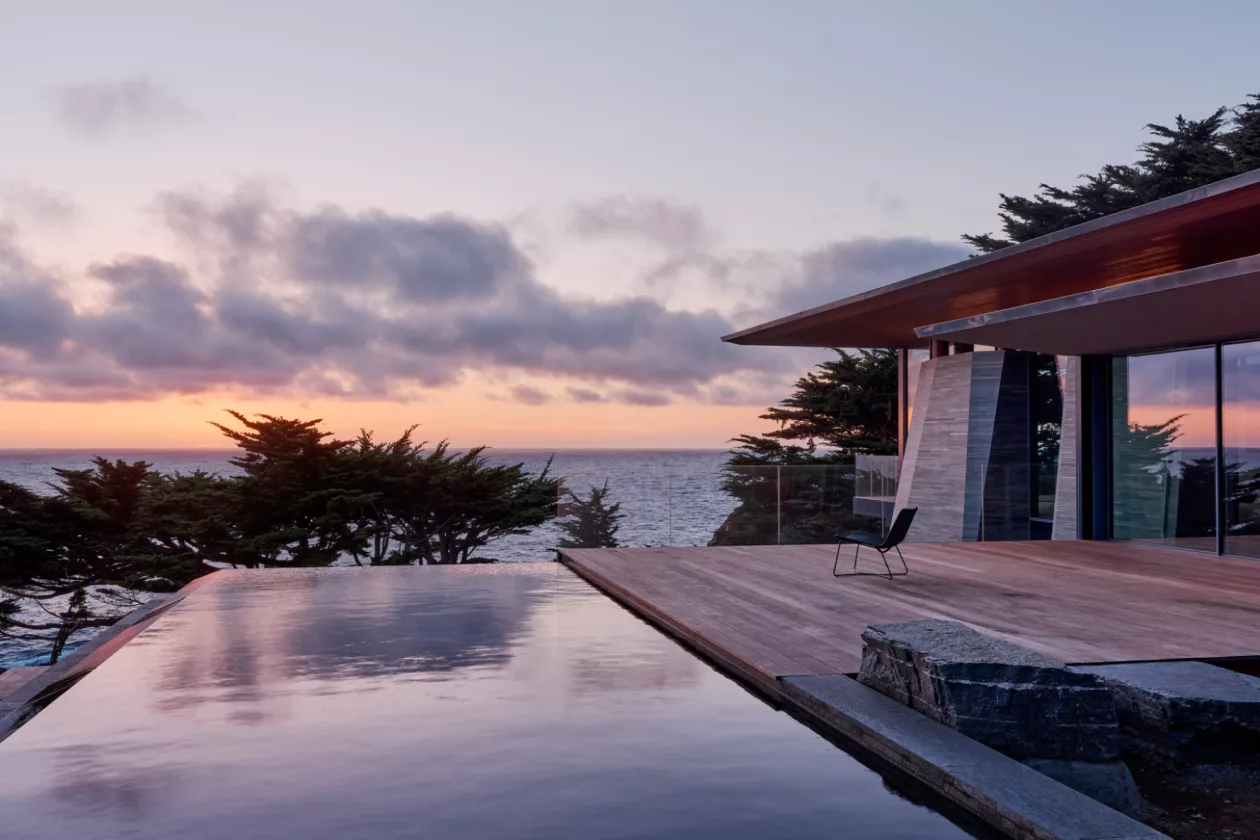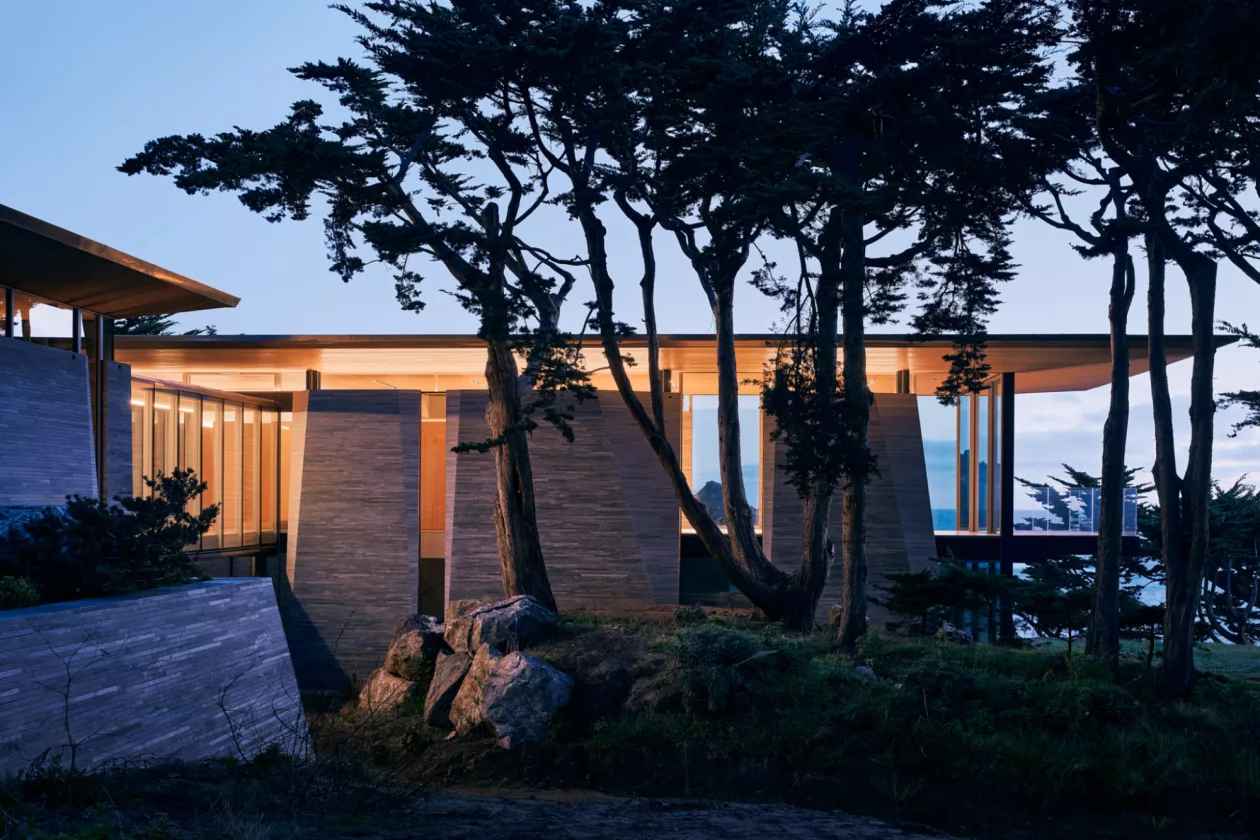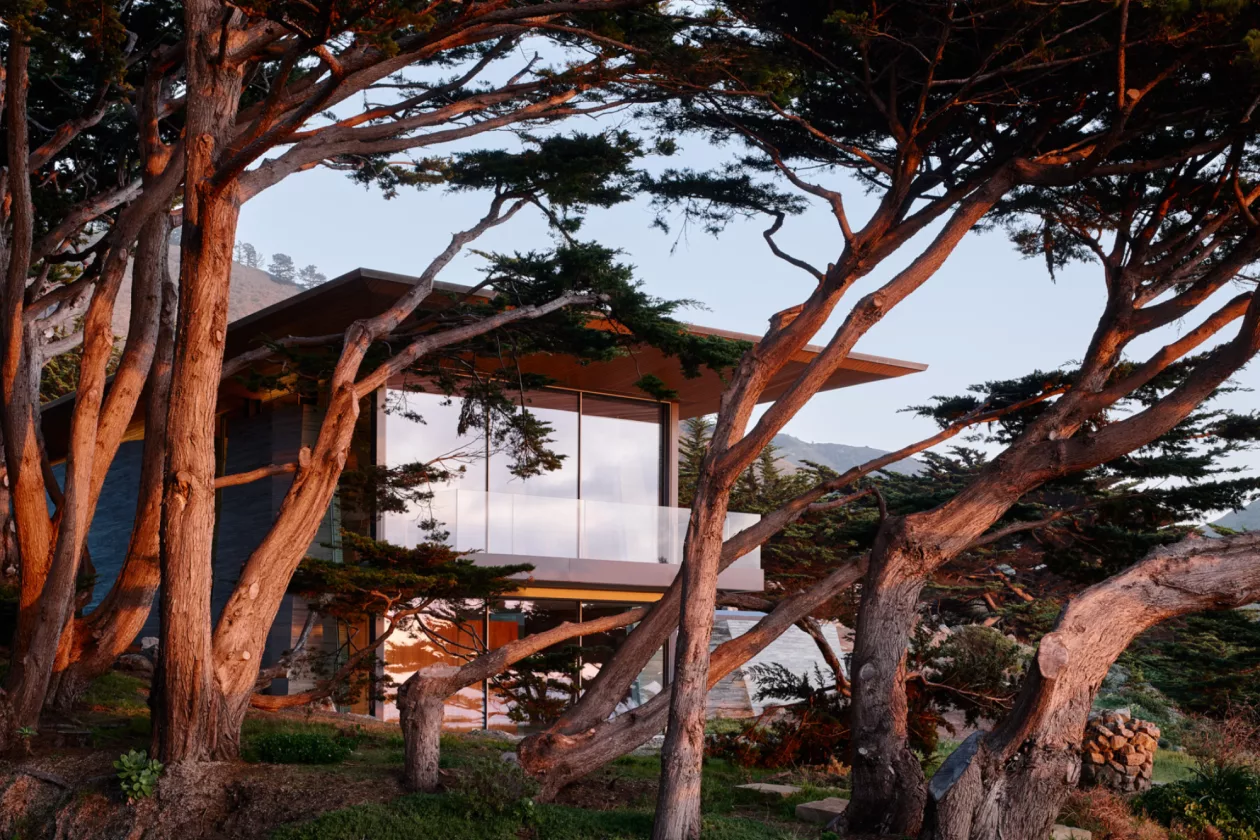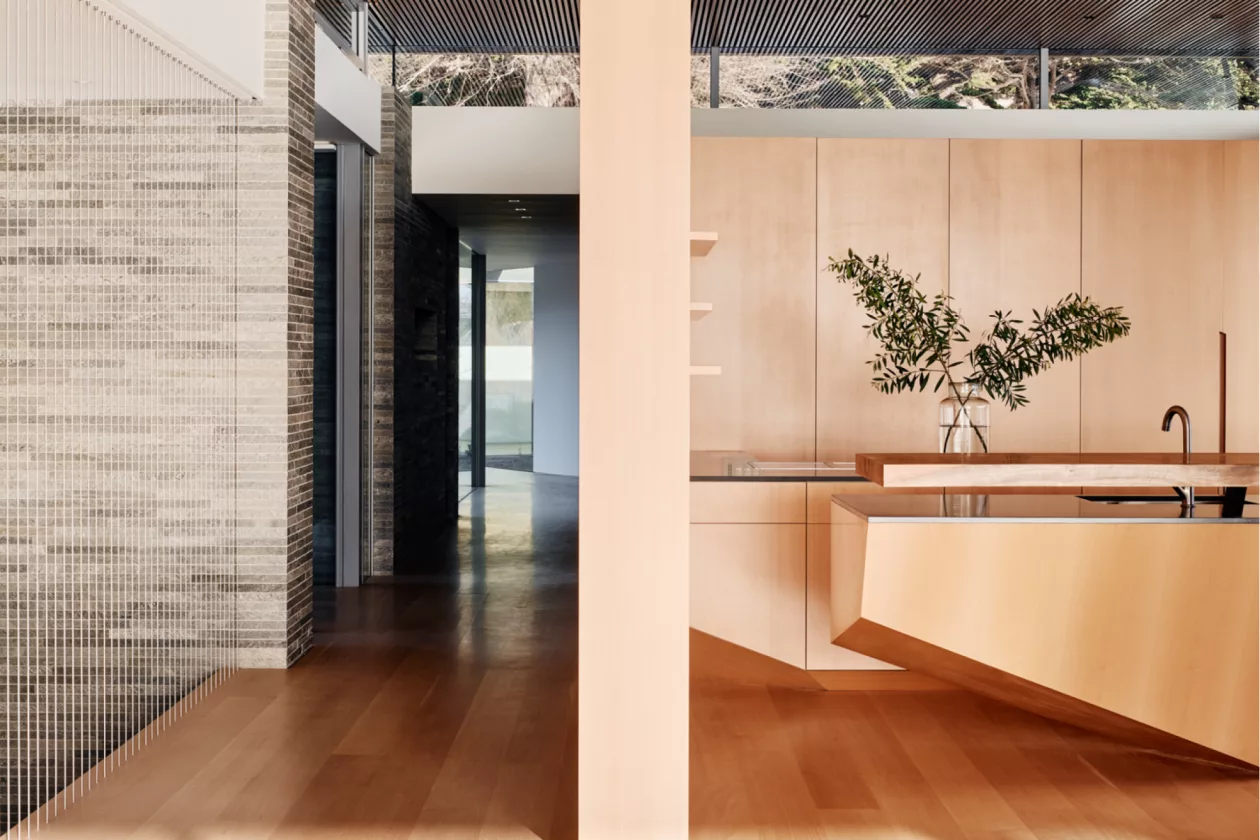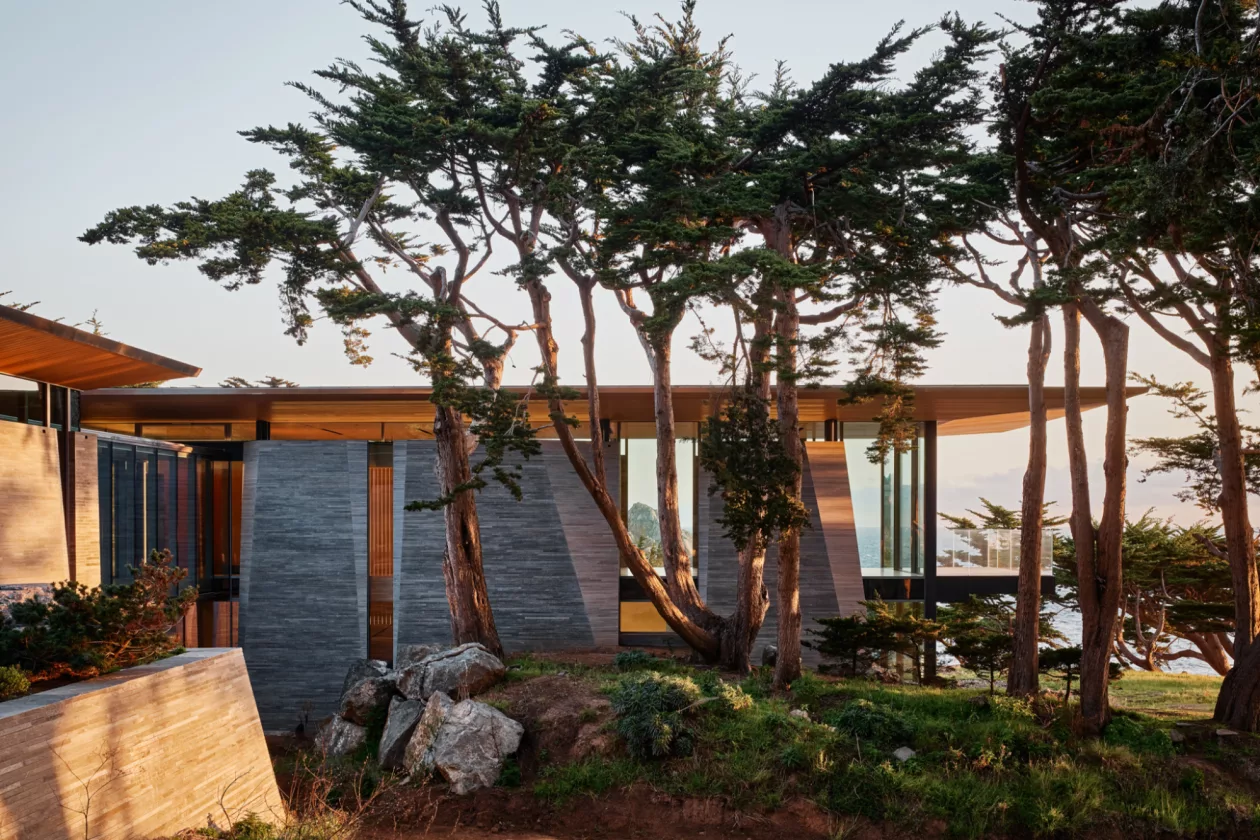Perched dramatically on a rugged peninsula overlooking the Pacific Ocean, the Big Sur House by Fields Architecture stands as a testament to harmonious integration with nature. This architectural marvel, designed by the father-son team of Stan and Jess Field, embraces the challenging coastal terrain rather than imposing upon it.
The home's design was born from a profound understanding of Big Sur's dynamic environment—a place where the Santa Lucia Mountains meet the mighty Pacific in a landscape shaped by tectonic forces, winter storms, and the constant motion of oceanic swells.
Architectural Vision
The Big Sur House was conceived as a series of adaptations to its unique environmental conditions. During early site explorations, the architects discovered a hidden ravine that had been filled with sediment and debris over time. Rather than seeing this as an obstacle, the Fields embraced this natural feature and restored it as a seasonal waterway, making it the heart of their design concept.
"By spanning this crevasse from end to end, including an entry bridge, we brought this natural feature directly into the heart of the home," explains Jess Field, who describes his approach as both artistic and practical, "aiming to celebrate the natural opportunities offered by each site."
Design & Architecture
The structure's form speaks eloquently to its surroundings. The house features a series of slender roofs that appear to float above massive stone walls that anchor the building to the ground. These tapered stone walls, laid with thin, long courses of gray quartzite, echo the striated cliff faces surrounding the property, making the building appear as an extension of the cliffs themselves.
The home is accessed via a steep driveway winding through a grove of cypress trees. Its walls and rooflines deliberately mimic the steep coastal terrain and stratified rocks found in the surrounding sea cliffs. As the sun moves across the sky, the rock faces of the building take on the same reflective quality as the cliffs below, creating a visual dialogue between architecture and landscape.
Environmental Integration
The
Big Sur House exemplifies thoughtful integration with its coastal setting through the restoration of the ravine as a functioning seasonal waterway and engineering that addresses the harsh realities of coastal living – erosion, seismic activity, and extreme weather conditions. Its placement, orientation, and materials carefully consider the impact of ocean spray and temperature fluctuations, ensuring the building's longevity while minimizing environmental disruption and contributing to the health of the larger ecosystem.
Interior Life
Inside the Big Sur House, warm oak floors balance with cool grey quartzite walls, creating a sensory experience that mirrors the contrast of land and sea. The beech wood kitchen features three elegantly tapered islands that mirror the geometry of the surrounding landscape, evoking the small outcroppings of rock visible in the water just off the coast.
The interior spaces are arranged in a carefully orchestrated sequence, guiding inhabitants from the entry, across the ravine via the glass bridge, into the living spaces, and out onto the pool deck. This thoughtful progression creates an immersive experience of moving through the landscape toward the edge of the continent.
Living Experience
Life in the Big Sur House means experiencing a profound connection to one of California's most stunning landscapes. The design facilitates a sensory journey through the home, with carefully framed views that reveal different aspects of the setting as one moves through the space.
"You're pulled through the building by a very sensory experience of light, breezes, smells, textures and the hapticity of all the elements that make this place so unique," explains Jess Field. "By using it every day, we're deliberately forming this ever-deepening connection between us and the particularities that make this land so incredible."
Takeaway
The Big Sur House by Fields Architecture exemplifies how thoughtful design can embrace rather than fight against coastal challenges, creating a home that feels like a natural extension of its dramatic landscape while enhancing the environment it inhabits.






